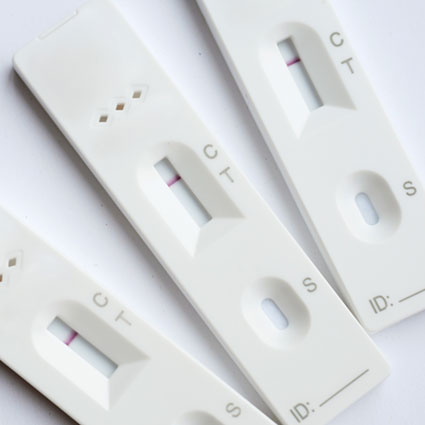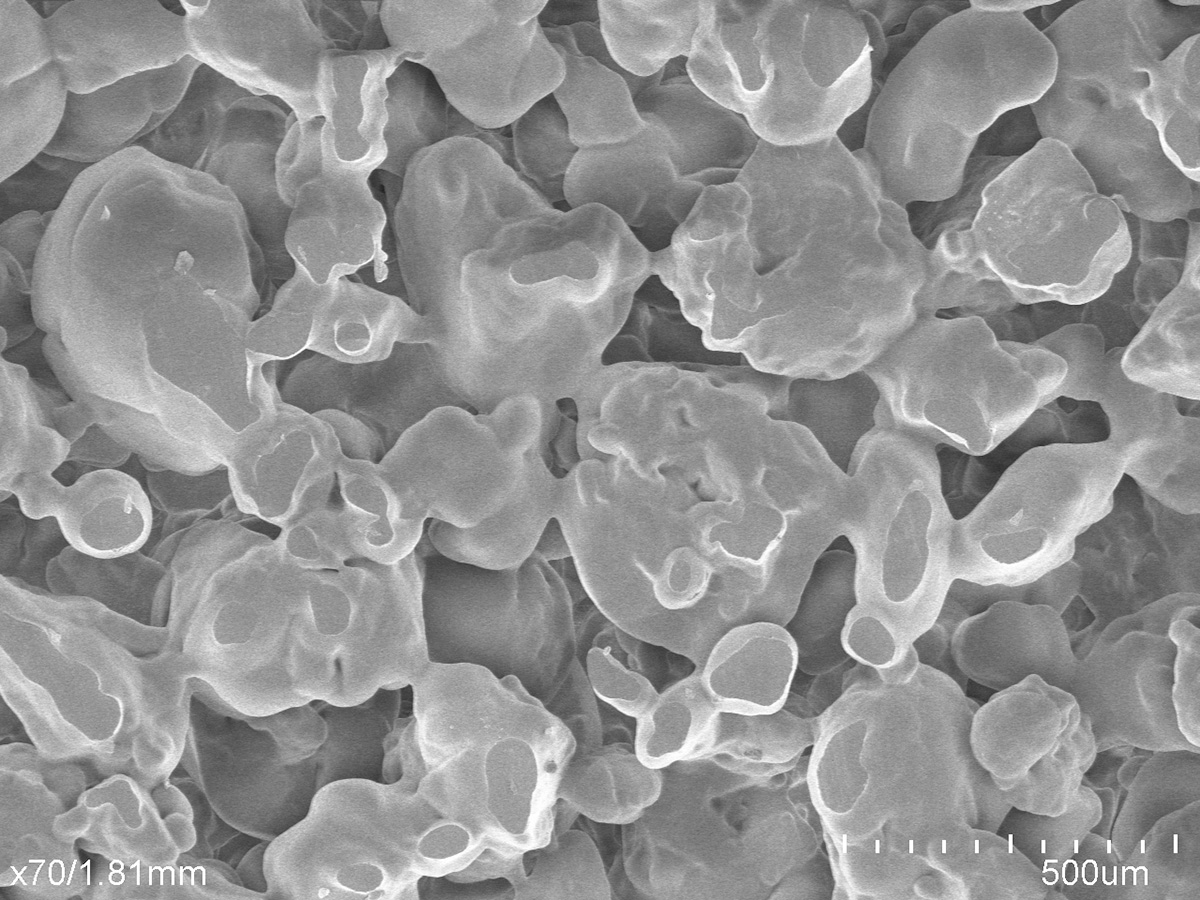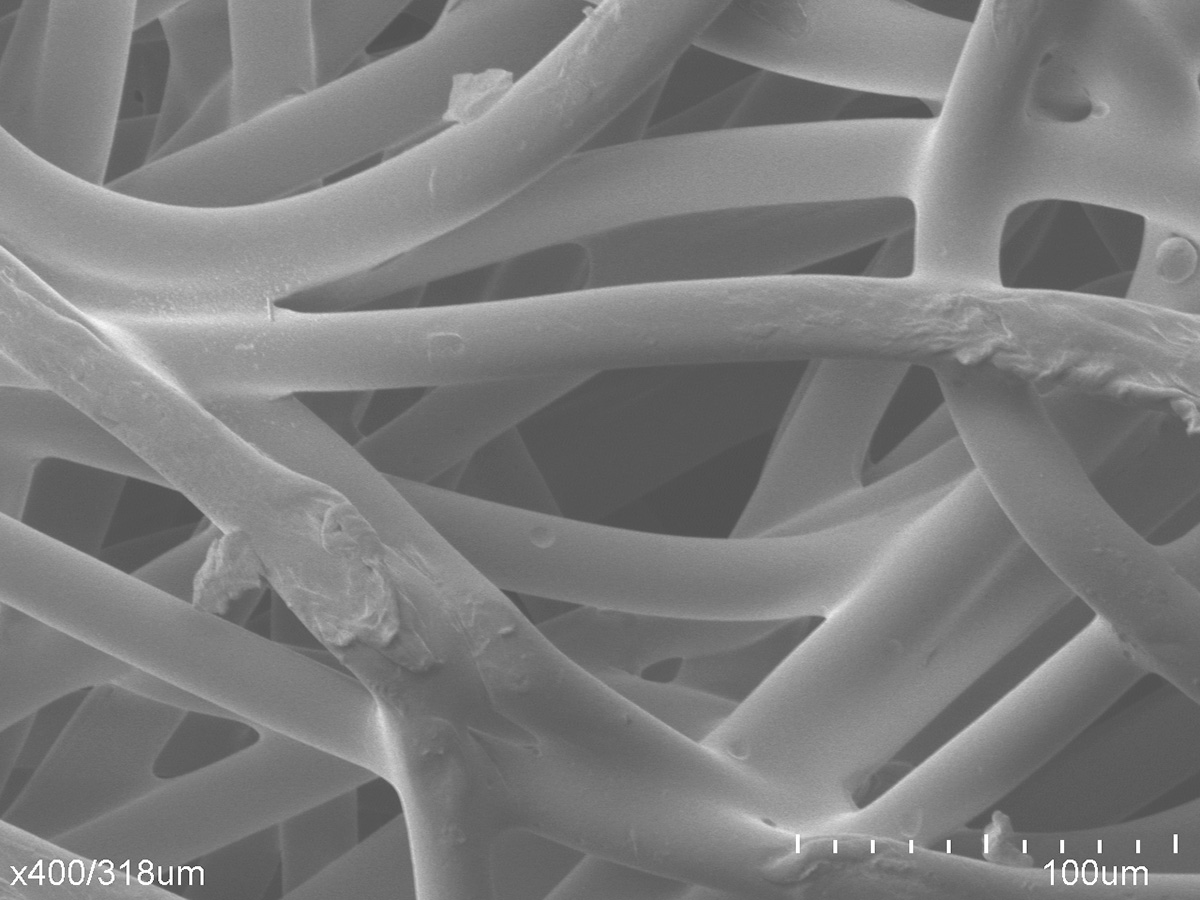Porex TruFlowTM absorbent pads have a consistent wicking volume and rate to minimize backflow of excess reagents
The absorbent pad absorbs all of the volume of the assay. Also known as a wick pad, Porex TruFlowTM absorbent pads for lateral flow have high absorption capacities while maintaining the tensile strength needed for reel-to-reel manufacturing. Porex TruFlow lateral flow assay pads do not include any glass fiber or cellulose, which ensures increased strength and durability for manufacturing. Our synthetic polyolefin-based fiber is uniform and hydrophilic for consistent absorption.


Porex TruFlow™
See the latest on how Porex is advancing diagnostics with superior consistency and ease of manufacturing.
Options for customizing absorbent pads for lateral flow assays
What is the absorbent pad in a lateral flow assay?
The lateral flow absorbent pad is a vital component for diagnostics. It’s primary purpose is to absorb and transport the liquid sample along the test strip, allowing it to interact with different reagents and produce a visible result. The absorbent pad plays a crucial role in regulating the flow rate of the sample, ensuring that it moves at an optimal pace through the test strip. This pace enables accurate reactions between the sample and the embedded components, thus contributing to the overall sensitivity and specificity of the assay. The efficient functioning of the lateral flow sample pad is crucial in determining the reliability of the test results.
What material is used for a lateral flow absorbent pad?
Lateral flow absorbent pads are made from a range of materials such as cotton, cellulose, glass fibers, or porous polymers. When considering materials for a lateral flow sample pad, Porex TruFlow stands out as a superior option that offers exceptional performance and easy manufacturing. It has been meticulously engineered to surpass traditional glass fiber.

Download our Technical Brief
When Results Matter: Increase Pregnancy Test Accuracy with Porous Wicking Technology
Related Resources

Absorbent Pad Brochure
Discover the benefits and technical specifications of Porex Absorbent Pads, the advanced media designed for Lateral-Flow-Tests.

Increase Lateral Flow Test Accuracy with Porous Materials
In this webinar, engineers working on lateral flow assay tests for in-vitro diagnostics can learn how the materials used in sample collection impact diagnostic sensitivity and specificity.

Conjugate Pads Brochure
Discover the capabilities of Porex conjugate release pads designed for lateral flow assay tests, which deliver superior conjugate release along with optimized handling, manufacturing, and overall performance.

Science Inside Video Series: How does a pregnancy test work?
Discover the science behind pregnancy tests and the porous fiber wick mechanism that collects urine and transfers it from the outside to the reagents inside the test, leading to accurate and reliable test results.



